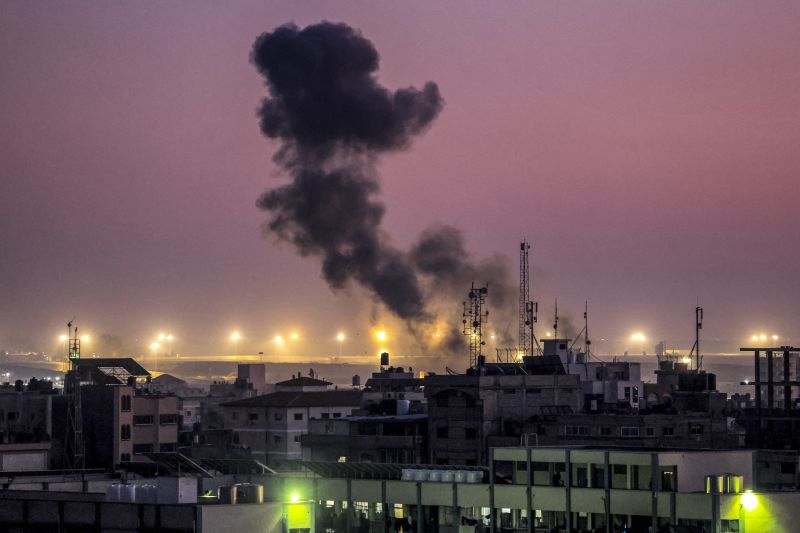
Diplomatic Standoff at the UN Over Gaza Ceasefire Resolution

Tensions rise as the United States and Algeria clash over a proposed resolution for Gaza ceasefire at the UN Security Council.
The United States Stance
The United States Ambassador to the United Nations, Linda Thomas-Greenfield, delivered a stern warning regarding the Algerian proposed resolution for a humanitarian ceasefire in Gaza. She emphasized that if the resolution were to be presented for a vote in its current form, Washington would not support its adoption.
Smoke billows during Israeli bombardment in Rafah on the southern Gaza Strip on Tuesday amid ongoing battles between Israel and the Palestinian militant group Hamas.
In a recent statement, Thomas-Greenfield disclosed ongoing efforts by the United States to broker a deal between Israel and Hamas. This deal aims to secure the release of hostages and initiate a six-week pause in the conflict. President Biden has been actively engaged in discussions with key leaders, including Prime Minister Netanyahu, to advance this initiative despite existing gaps in negotiations.
Arab Support for the Resolution
Contrary to the United States' position, Arab nations at the UN have reiterated their backing for the Algerian draft resolution calling for an immediate ceasefire in Gaza. The resolution emphasizes the urgent need for humanitarian aid amidst escalating tensions and the looming threat of an Israeli ground invasion in Rafah.
Palestinian Ambassador to the United Nations, Riyad Mansour, emphasized the widespread support for the proposed resolution within the international community. He urged the UN to take decisive action in response to the crisis and highlighted the critical nature of the situation for Palestinian civilians in Gaza.
Diplomatic Strategies and Calls for Action
Amid the diplomatic standoff, Thomas-Greenfield called upon the UN Security Council to focus on pressuring Hamas to accept the proposed ceasefire deal on the table. She stressed the importance of diplomatic engagements and underscored the need for regional cooperation to ensure the protection of civilians in Rafah, where over a million people are at risk.
The United States remains committed to diplomatic efforts and has pledged transparency in its communications with Israeli and regional leaders. Thomas-Greenfield emphasized the necessity of supporting the ongoing negotiation process rather than jeopardizing it with conflicting measures that could hinder the prospect of a lasting resolution to the hostilities in Gaza.













